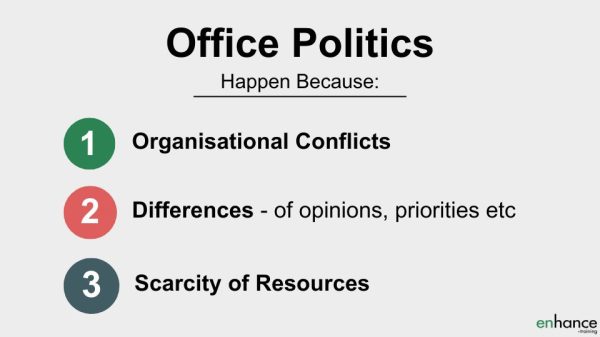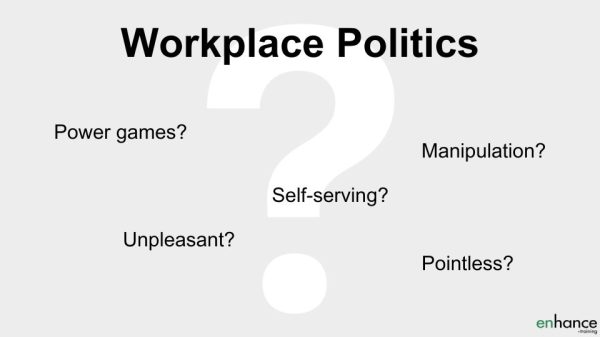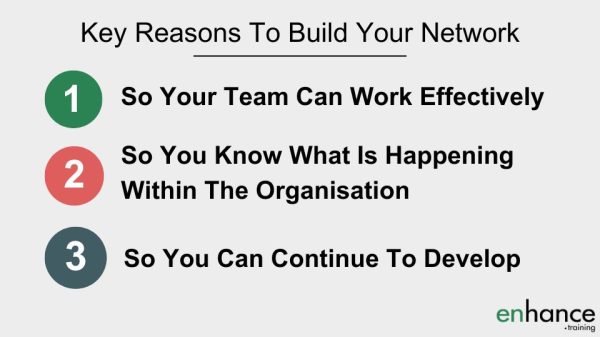Office politics – 6 Crucial Ways to Successfully Navigate Workplace Politics

Office politics are two words that evoke unease and thoughts of a necessary evil in most of us. Early in my career I thought of workplace politics as power games, manipulation, trying to serve your own interests etc and I tried my best to avoid office politics.
In middle management, I realised that ignoring office politics was pretty costly personally and professionally. I realised that learning how to play office politics to your advantage is a crucial part of any management job and doing so doesn’t make you a bad person.
Every business and organisation will have politics. Office politics happen because of conflicts, differences and scarcity that are built into every group of people and every business. Politics is the skills and activities used to build influence within an organisation. Influence can be used constructively for the good of the group through to more negative activities such as supporting your own personal interests. Influence is needed to be effective in any management job.
Office Politics – 6 Crucial Ways to Successfully Navigate Workplace Politics
- Be Interested in Office Politics
- Influence is Power – use it for the right reasons
- Work in Service of Others
- Map out Who You Need
- Build Bridges and Allies
- Proactively Work on Your Reputation
Watch on YouTube
Listen on Podcast
be interested in office politics – The first crucial step in how to manage office politics
If you ignore workplace politics and just try to do you job, as I did for many years, or if you feel office politics is a waste of time or pointless, you won’t be effective in management roles. You simply won’t build the influence you need to do a good job.
Managers are dependent on a wide range people to do a good job. These interdependencies dictate the need to learn how to handle office politics while remaining true to yourself and being authentic. Your colleagues play a big part in your effectiveness and success at work.
So be interested in the office politics.
Understand who is seeking what, what projects are happening, why certain strategies and tactics have been chosen by the company and what each department needs to achieve to enable these strategies and tactics to be implemented. Gaining understanding of the goals at different levels gives you an important window into what functions, departments and teams are likely to need from each other and more importantly what they need from you and your team. Understand these needs and you will be much better equipped in navigating office politics.
Ask questions to get the people in your internal networks talking about their projects, resource challenges and frustrations. Ask about who is pushing what initiative and why. Ask how this aligns with company goals and strategies.
When you know what is happening around the business, you can anticipate problems coming your way. You can take better advantage of development opportunities and you can pass on this knowledge to those you rely on to support you and your team’s work. i.e. helping those that help you and build appreciation and influence in the process.
Working hard is not enough. Doing a great job is much easier when you understand the company politics and use them to your advantage.

influence is power and you must use it for the right reasons
The more influence you build, the more power you have to get your job done as effectively as possible, which in turn builds more influence. For example, when you are influential, you are much more likely to get your request done first, which means you can get more done in the same timeframe compared to someone with less influence.
Influence is what other people give you. When you consistently act for the good of the group or the company in this case, people will support you, appreciate you and you will be more influential as a result. If you are a jerk, a pain to deal with or too often act in your own self-interest, people will avoid dealing with you. You will be shut out of important meetings, your opinion dismissed more quickly, your help rarely asked for. In short, you will lose influence and the power to do your job effectively.
Use your influence and power to do the best for the group and you will earn more influence.

work in service of others – The third way to handle office politics is to
You might be thinking how does working in service of others help with workplace politics. This approach is all about building relationships and building influence.
You have influence over others when you have a relationship with them, when they trust you and like you, and when you can help them do their job better.
Firstly, be a nice person to deal with. Be friendly, be positive, be helpful. When people are happy spending time with you and asking you for help, you can build relationships.
All the small things matter. Help others enthusiastically when interrupted. Listen when they complain about the office politics and what they have been asked to do. Compliment them on what they do well or what you are impressed by. Be proactively helpful as much as you can.
To step up your relationship building, spend time working out how you can help your colleagues, your boss, and your stakeholders. Think about their goals and how you might help them achieve those goals, even if it just helping them with a small step.
Helping others gives you a great excuse to approach people you don’t know, to start to build a relationship with them. The more you do favours for others, the more they will feel compelled to do favours for you in return. Focus on others more than you focus on yourself.
Be authentic, be yourself and work in service of others to build relationships and trust, which in turn builds influence and helps you deal with the politics at work.
Map out who you need – The fourth way to improve how you handle office politics
Mapping out who you need is essential in larger organisations and those with offices in multiple locations and countries. The bigger more complex an organisation, the harder it is to get to know those people who impact your work, your team, and your career prospects.
Work out who is influential, who has the power to get things done and who would be useful to get to know.
There are three key reasons to build your network and these are so:
- Your team can work effectively day in day out because you have good relationships with those that support your team
- What is happening within the organisation is known so you can anticipate problems and take advantage of opportunities
- You can continue developing yourself and move your career forward
Draw an org chart map of those people that you need to get to know. Work out how you might help them and then create an excuse to meet, get a current contact to introduce you, or get on a project or initiative that they are working on or running and start building a relationship.
Make the effort to map out how you need to know and start building those relationships.

build bridges and allies
To build influence and navigate office politics, you need to get on with and be able to work with all types of people – those you have lots in common with and those that you have very little in common.
There are lots of ways to build a productive working relationship with any colleagues. Tips we have already mentioned are:
- Be nice, pleasant, and helpful
- Proactively look to help your colleagues solve their problems
- Get on projects, workstreams and initiatives to build relationships with specific people
- Work in alignment with the goals of the company, department, and team wherever possible
Other suggestions to build relationships are:
- Research those you want to build relationships with, or ask colleagues for information about them. Find out what their interests or hobbies are, and then get them talking about what they love.
- Always practice diplomacy. Why annoy or upset colleagues when you don’t have to. Not annoying people is as important as the positive actions.
- Work hard to do favours for others, help out when you can and build appreciation and support. The more others owe you, the more influence you have.
- Build a reputation for being easy to deal with, positive, helpful, and competent. You will get more opportunities to expand your network with a positive reputation.
Build bridges and find common ground wherever you can. You gain allies when you build good relationships and you work in alignment to the needs of the company and function. The more relationships and allies you have, the more influence you have within an organisation.
proactively Work on Your Reputation – the sixth key activity in managing workplace politics
When you have a good reputation within a business, people pay more attention to you, are pre-disposed to be positive towards you and are more likely to want to build a relationship with you. A good reputation does some of the trust building before you have met the other person.
When you have a good reputation and are visible within the organisation, you are more likely to be perceived as influential. The more influence you hold, the more other people will try to build relationships with you.
All of this makes building relationships and navigating the politics within a company a lot easier and quicker and you put less effort in to do so.
If you have a bad reputation say if you are self-serving, difficult, unhelpful … then the opposite happens and building relationships and gaining influence is very much an uphill battle.
Work to proactively build a great positive reputation by implementing the many office politics tips I have shared today.
In Summary
How to manage office politics is a skill that needs practice and good judgement. What I have covered today will help you continue to develop your political skills so that you increase your influence and impact within the business.
The 6 Crucial Ways to Successfully Navigate Workplace Politics I have covered are:
- Be Interested in Office Politics
- Influence is Power – use it for the right reasons
- Work in Service of Others
- Map out Who You Need
- Build Bridges and Allies
- Proactively Work on Your Reputation
If you have any questions on “Office politics – 6 Crucial Ways to Successfully Navigate Workplace Politics” please email me at support@enhance.training and I will get back to you.
Being aware of workplace politics and knowing how to handle the politics are crucial steps for any manager to learn as early as possible. I learnt the hard way in middle management, missing out on promotions because the right people didn’t know me.
Politics is building influence, which you absolutely need as a manager, to do a good job. Start building more relationships and learning how to build influence.






